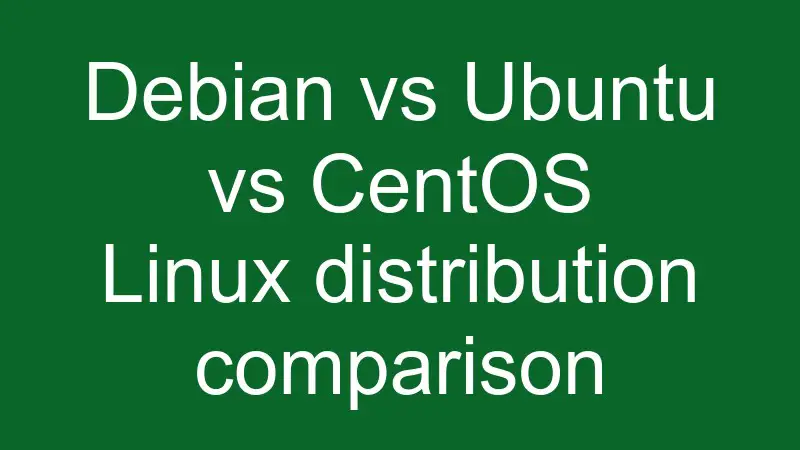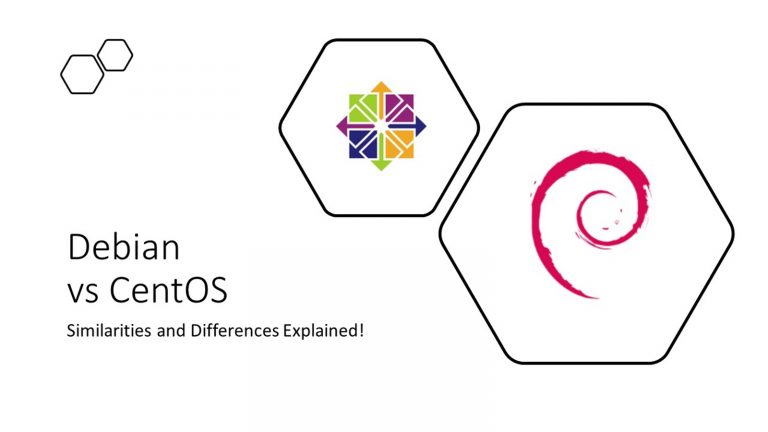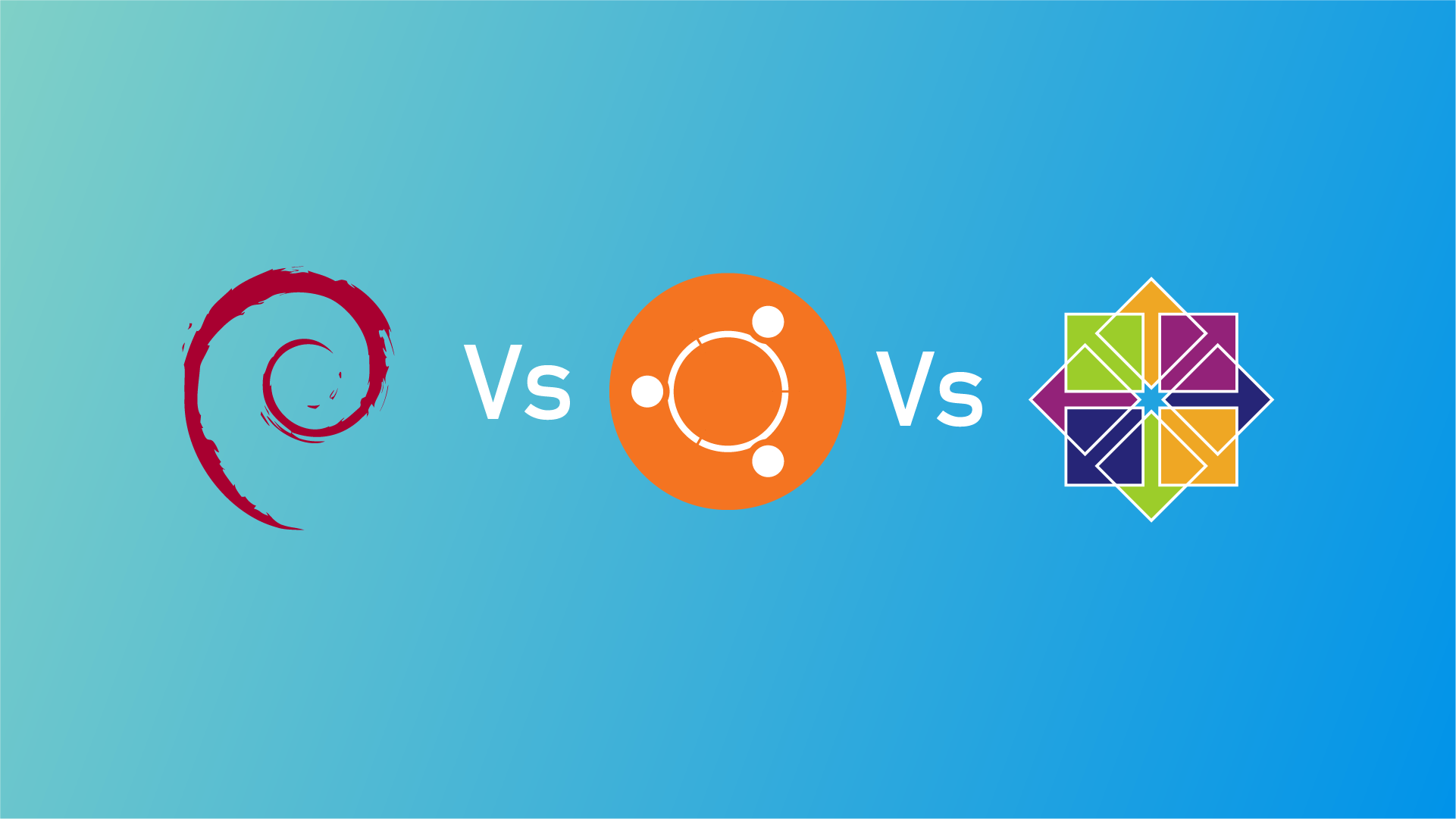Debian vs. CentOS: Best for Server Use?

When choosing an operating system for a server, system administrators have several options to consider, including Debian and CentOS. Both are well-respected Linux distributions with a strong reputation for stability, security, and flexibility. However, there are some key differences between the two that can make one a better choice for a particular server environment than the other.

Debian

- Pros:
- Large and active community
- Wide range of software available
- Regular updates
- Strong security
- Cons:
- Can be complex to manage
- Not as user-friendly as CentOS
CentOS
- Pros:
- Easy to manage
- User-friendly
- Stable and reliable
- Good performance
- Cons:
- Smaller community than Debian
- Less software available
- Not as frequent updates as Debian
Which is Best for Server Use?
The best operating system for a server depends on the specific needs of the server environment. However, in general, Debian is a good choice for servers that require a wide range of software and frequent updates. CentOS is a good choice for servers that need to be easy to manage and user-friendly.
Conclusion
Ultimately, the decision between Debian and CentOS depends on the specific needs of the server environment. Both operating systems have their own strengths and weaknesses, and the best choice for one server may not be the best choice for another.# Debian Vs. Centos: Best For Server Use?
Executive Summary
Debian and CentOS are two of the most well-known Linux distributions on the market, preferred by users for setting up any server for business or individual use. Both Debian and CentOS are reliable, secure, and offer a wide range of software and packages making them viable choices for server use. This article will analyze and compare these two Linux distributions, examining their features, compatibility, security, stability, and support to determine which platform is the better option for server use.
Introduction
When it comes to choosing an operating system for a server, there are many factors to consider. In this article, we will compare two of the most popular Linux distributions for server use: Debian and CentOS. Both have their own advantages and disadvantages, and the best choice depends on your specific needs and preferences.
5 Things Comparison: Debian vs. CentOS
1. Package Management and Availability
- Debian: Debian uses a package management system known as Advanced Packaging Tool (APT). APT is a user-friendly command-line tool that makes it easy to install, update, and remove software packages.
- CentOS: CentOS uses the Yellow dog Updater Modified (YUM) package manager. YUM is similar to APT and offers a wide range of software packages, but it is generally considered to be less user-friendly than APT.
2. Compatibility
- Debian: Debian is compatible with a wide range of hardware and software. This makes it a good choice for applications that require a high degree of compatibility.
- CentOS: CentOS is compatible with Red Hat Enterprise Linux (RHEL). This makes it a good choice for applications using RHEL.
3. Security
- Debian: Debian has a strong focus on security. The distribution employs various security features, such as regular security updates and a security hardening process.
- CentOS: CentOS also has a strong focus on security. It draws its security features from RHEL, which is renowned for its enterprise-level security.
4. Stability and Reliability
- Debian: Debian is known for its stability and reliability. The distribution undergoes rigorous testing before it is released, and it receives regular updates to ensure its stability.
- CentOS: CentOS is also known for its stability, as it is based on RHEL. RHEL is a highly stable platform.
5. Support
- Debian: Debian has a large community of users and developers who provide support to its users. There are also many online resources available to help Debian users.
- CentOS: CentOS has a large community of users and developers. It includes online resources and documentation for users.
Conclusion
Both Debian and CentOS are excellent choices for server use. However, there are some key differences between the two distributions that may make one a better choice for your specific needs. Debian is an open-source based platform, has an extensive package management system, wide compatibility with applications and drivers, and a large community of users to offer support. CentOS offers stability, long-term support, enterprise-level security features, and compatibility with Red Hat Enterprise Linux applications. Ultimately, the best choice for your server depends on factors like the system’s requirements, hardware compatibility, security concerns, and available resources.
Keyword Phrase Tags:
- CentOS vs Debian
- Linux Distribution for Server
- Debian Features for Servers
- CentOS Features for Servers
- Choosing the Right Linux Server Distribution

whats the differnce? debian or centos?
I don’t know, but i think debian is more difficult to use than centos
Actually, centos is more difficult to use than debian, because debian has a better package manager
I use both debian and centos, and i can tell you that they are both great distributions
Wow, this article is really helpful, thanks
I use debian, because centos is for losers
I love debian, it’s the best distribution ever
I hate centos, it’s the worst distribution ever
Debian is a free and open-source operating system that is based on the Linux kernel
Actually, centos is not a free and open-source operating system, it is a commercial operating system
I use both debian and centos, and i can tell you that they are both commercial operating systems
Wow, this article is really helpful, thanks
I use debian, because centos is for losers